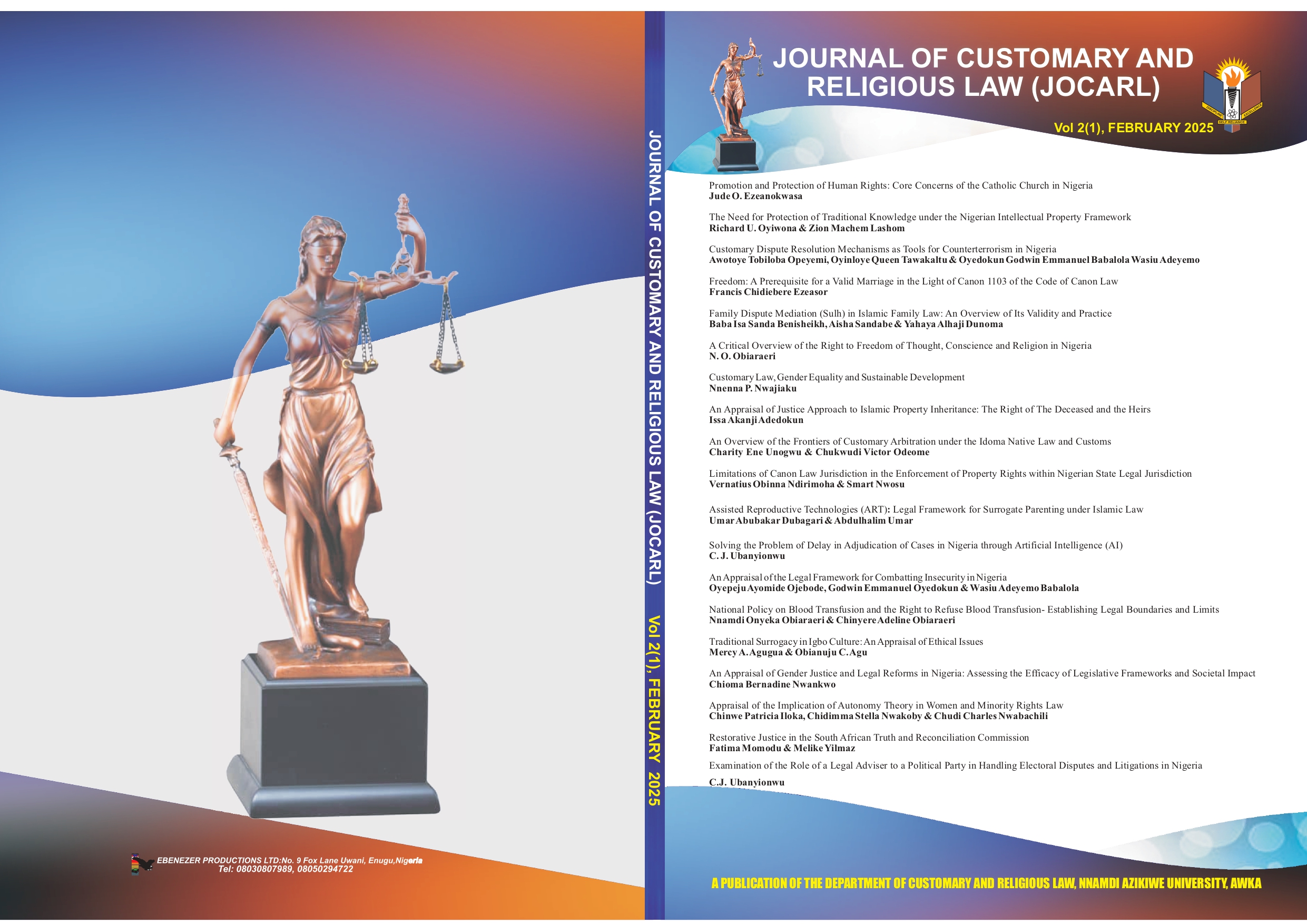An Appraisal of Gender Justice and Legal Reforms in Nigeria: Assessing the Efficacy of Legislative Frameworks and Societal Impact
Keywords:
Gender, Nigeria, Equality, Discrimination, Customary LawAbstract
The intersection of gender and law in contemporary Nigeria raises complex and pivotal issues that profoundly impact individuals' lives. This paper delves into the historical context of Nigeria as a patriarchal society, where men predominantly wield power, and the legal framework mirrors this gender imbalance. Despite the existence of laws that prohibit discrimination, women continue to experience marginalisation in areas such as education, employment, and inheritance rights. This underscores the disparity between
policy and execution, exacerbating the intricacies of gender and law in Nigeria. An analysis of the intricacies of gender and law in modern Nigeria indicates that much progress is still required to attain gender equality and justice for all. The data was collected using the doctrinal method, employing an analytical approach to review various statutes, court cases, journals, and online materials. The findings underscore the urgent need for the government to review and amend discriminatory laws, enforce gender equality legislation, and advocate for equal representation of women in decision-making roles. Moreover, there is a pressing need for a shift in societal attitudes towards gender roles and norms to achieve genuine gender equality in Nigeria.

